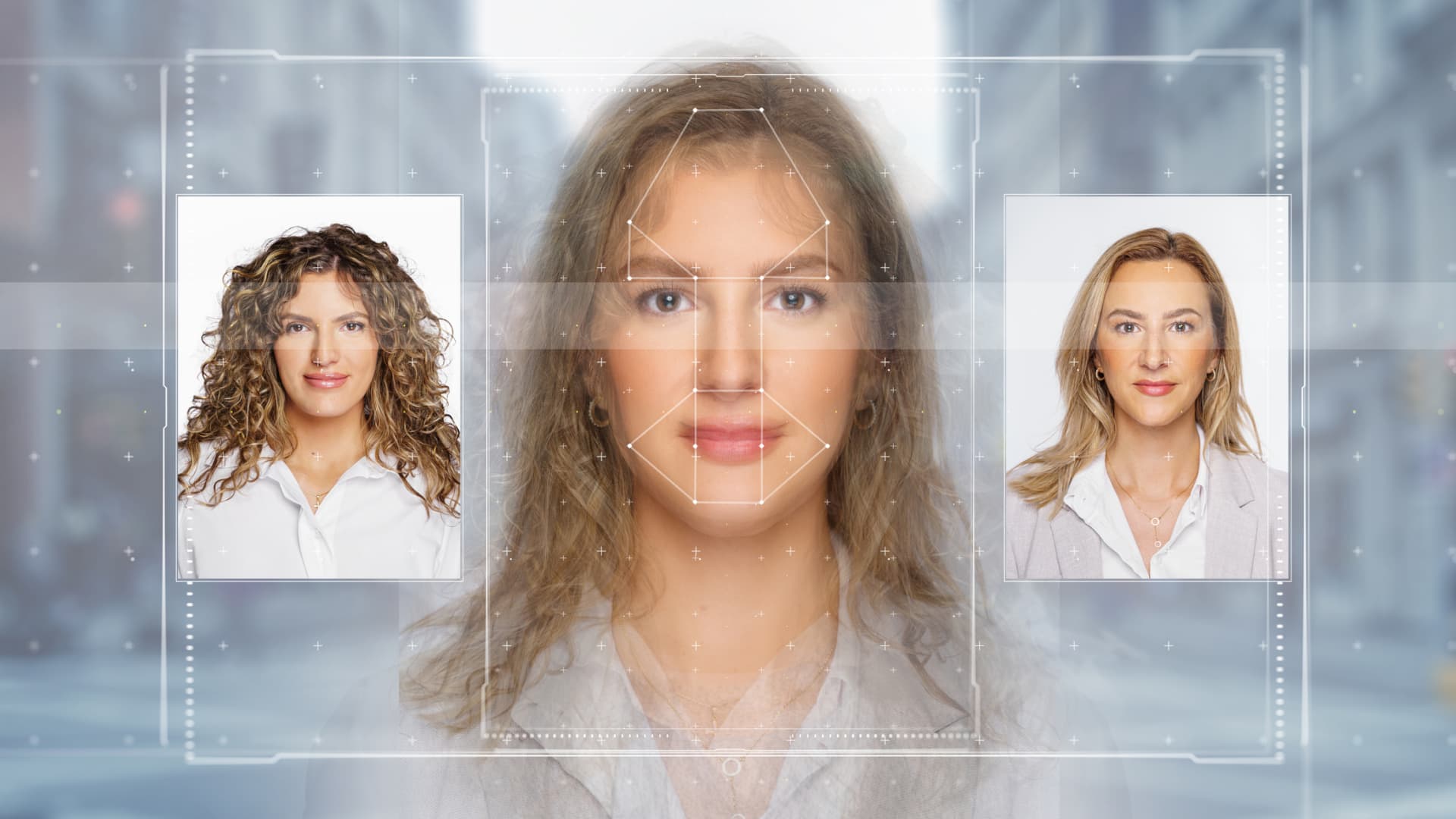Deepfake Kpop: The Phenomenon Taking Over The Music Industry
Deepfake technology is revolutionizing the world of Kpop in ways no one could have imagined. From creating hyper-realistic virtual idols to enhancing music videos, deepfake kpop is becoming a buzzword in the industry. Fans and creators alike are diving into this digital frontier, exploring endless possibilities. But wait, before we dive deeper, let’s talk about what deepfake really means and why it’s causing such a stir in the Kpop scene. It’s not just about editing or tweaking visuals; it’s about redefining the boundaries of creativity and authenticity.
Deepfake kpop isn’t just about mimicking famous idols or creating alternate versions of your favorite artists. It’s a powerful tool that allows fans to interact with their favorite stars in ways that were once impossible. Imagine seeing your favorite Kpop star perform a song from a different era or even in a completely different style. That’s the magic of deepfake technology. But like any powerful tool, it comes with its own set of challenges and ethical dilemmas.
Before we get into the nitty-gritty, let’s clear the air. Deepfake kpop isn’t just a trend; it’s a game-changer. The technology is evolving at lightning speed, and its impact on the music industry is undeniable. So, whether you’re a die-hard Kpop fan or just curious about how technology is shaping the future of entertainment, this article has got you covered. Let’s jump in and explore the world of deepfake kpop together!
- Julie Kavner The Voice Behind Your Favorite Animated Icon
- Charli Damelio Nude Leaks Debunking Myths And Understanding The Reality
What Exactly is Deepfake Kpop?
Deepfake kpop refers to the use of artificial intelligence to create realistic simulations of Kpop idols and performances. The technology uses machine learning algorithms to analyze and replicate facial expressions, movements, and even voices. It’s like having a digital clone of your favorite artist that can perform any task or scene you imagine. But here’s the kicker – it’s not just about copying appearances; it’s about creating entirely new experiences that feel real.
How Does Deepfake Technology Work?
At its core, deepfake kpop relies on two main components: Generative Adversarial Networks (GANs) and neural networks. GANs are responsible for generating realistic images and videos by pitting two neural networks against each other. One network generates fake content, while the other tries to detect it. Over time, the generator gets better at creating convincing deepfakes. Meanwhile, neural networks analyze vast amounts of data to understand how Kpop idols move, sing, and interact on stage. It’s like teaching a computer how to be a Kpop star!
For instance, imagine training a deepfake model on all the performances of BTS. The algorithm would learn their signature moves, vocal techniques, and even their unique quirks. Once trained, the model could generate a video of BTS performing a completely new song or even a different genre of music. The possibilities are endless, and the results are often mind-blowing.
- Mckinley Exclusive Leaks The Inside Story Yoursquove Been Waiting For
- Tobias Menzies The Man Who Mastered Both Sides Of The Camera
The Rise of Virtual Idols in Kpop
Deepfake technology has given rise to a new breed of Kpop stars – virtual idols. These digital personas are created entirely using AI and are indistinguishable from real-life idols. Some of the most popular virtual idols, like K/DA and Lisa, have amassed millions of fans worldwide. But what makes them so appealing? Is it their perfect looks, flawless performances, or the fact that they’re not bound by human limitations?
Why Are Virtual Idols So Popular?
Well, for starters, virtual idols offer a level of control and consistency that real-life idols can’t match. They don’t get tired, they don’t have bad days, and they can perform any task flawlessly. Plus, they can be customized to appeal to specific audiences. For example, a virtual idol can have different appearances or personalities depending on the market they’re targeting. It’s like having a tailor-made star for every fan base.
But there’s more to it than just convenience. Virtual idols also provide a sense of escapism. In a world where perfection is often unattainable, these digital stars represent an idealized version of what Kpop could be. They’re not just entertainers; they’re symbols of hope and aspiration for fans around the world.
The Impact of Deepfake Kpop on the Industry
Deepfake kpop is reshaping the music industry in ways that were unimaginable just a few years ago. From enhancing music videos to creating interactive experiences for fans, the technology is opening up new revenue streams for artists and labels. But it’s not just about money; it’s about pushing the boundaries of creativity and innovation.
How Are Labels Using Deepfake Technology?
- Creating immersive music videos that blend reality with fantasy.
- Producing virtual concerts that can reach fans all over the world.
- Developing interactive apps that allow fans to engage with their favorite idols.
- Reviving classic performances of legendary artists.
For example, SM Entertainment, one of the biggest Kpop labels, has already started experimenting with deepfake technology. They’ve created virtual versions of their artists that can perform in real-time, giving fans a chance to interact with them in ways that were once impossible. It’s like having a private concert with your favorite idol, but without the need for a physical venue.
The Ethical Dilemmas of Deepfake Kpop
While deepfake kpop offers endless possibilities, it also raises important ethical questions. How far is too far when it comes to manipulating reality? What happens when fans can’t tell the difference between real and fake content? And most importantly, who owns the rights to an artist’s digital likeness?
Is Deepfake Kpop a Threat to Authenticity?
Some critics argue that deepfake technology undermines the authenticity of Kpop. After all, if fans can’t trust what they see or hear, how can they form genuine connections with their favorite artists? Others believe that deepfake kpop is just another form of artistic expression, and as long as it’s used responsibly, it can coexist with traditional methods of music production.
But the issue goes deeper than just authenticity. There’s also the matter of consent. Should artists have a say in how their digital likenesses are used? What happens if a deepfake video is created without their permission? These are questions that the industry needs to address as deepfake technology continues to evolve.
Deepfake Kpop in the Hands of Fans
Deepfake technology isn’t just for big labels and corporations. Fans are also getting in on the action, creating their own deepfake content using free or low-cost tools. This democratization of technology has led to a surge in fan-made videos, memes, and even entire music videos featuring their favorite Kpop idols.
What Are Fans Creating with Deepfake Technology?
- Fan-made music videos featuring alternate versions of their favorite songs.
- Memes and short clips that reimagine iconic Kpop moments.
- Interactive experiences that allow fans to "meet" their favorite idols.
But here’s the thing – not all fan-made content is created equal. Some deepfake videos are so convincing that they can be mistaken for official releases. This raises important questions about copyright and intellectual property. How do labels protect their artists from unauthorized use of their likenesses? And how do fans ensure that their creations are respectful and responsible?
The Future of Deepfake Kpop
As deepfake technology continues to evolve, its impact on the Kpop industry will only grow. We’re likely to see more virtual idols, interactive experiences, and even AI-generated music. But with great power comes great responsibility. The industry needs to establish clear guidelines and regulations to ensure that deepfake kpop is used ethically and responsibly.
What Can We Expect in the Coming Years?
Here are a few predictions for the future of deepfake kpop:
- More labels will invest in virtual idols and AI-generated content.
- Fans will have more tools at their disposal to create their own deepfake content.
- The line between real and fake will become increasingly blurred, forcing the industry to adapt.
But the biggest question remains – will deepfake kpop replace traditional methods of music production? Or will it simply complement them, offering fans new ways to experience their favorite artists? Only time will tell.
Data and Statistics on Deepfake Kpop
According to a recent study, the global deepfake market is expected to reach $2.4 billion by 2025. In the Kpop industry alone, deepfake technology has already generated millions in revenue through virtual concerts, music videos, and interactive experiences. But the numbers don’t stop there. Fans are also contributing to the trend, with thousands of deepfake videos being shared on platforms like TikTok and YouTube every month.
Here are some key statistics to consider:
- Over 50% of Kpop fans have watched or interacted with deepfake content.
- Virtual idols account for 20% of all new Kpop releases.
- Deepfake concerts have reached audiences in over 100 countries.
These numbers highlight the growing popularity of deepfake kpop and its potential to reshape the industry. But they also underscore the need for responsible use and regulation to ensure that the technology benefits everyone involved.
Conclusion: Embracing the Future of Kpop
Deepfake kpop is here to stay, and its impact on the industry will only grow in the coming years. While it offers endless possibilities for creativity and innovation, it also raises important ethical questions that need to be addressed. As fans and creators, it’s our responsibility to ensure that deepfake technology is used responsibly and respectfully.
So, what can you do to get involved? Start by exploring the world of deepfake kpop for yourself. Watch some fan-made videos, attend a virtual concert, or even try creating your own deepfake content. The more you understand the technology, the better equipped you’ll be to navigate its challenges and opportunities.
And don’t forget to share your thoughts and experiences with us in the comments below. We’d love to hear what you think about the future of deepfake kpop and how it’s changing the industry. Together, we can shape the future of entertainment and ensure that it benefits everyone involved. Cheers!
Table of Contents
- What Exactly is Deepfake Kpop?
- How Does Deepfake Technology Work?
- The Rise of Virtual Idols in Kpop
- The Impact of Deepfake Kpop on the Industry
- The Ethical Dilemmas of Deepfake Kpop
- Deepfake Kpop in the Hands of Fans
- The Future of Deepfake Kpop
- Data and Statistics on Deepfake Kpop
- Conclusion: Embracing the Future of Kpop



Detail Author:
- Name : Bert Feil
- Username : brenna43
- Email : jaskolski.josiane@rice.com
- Birthdate : 1997-05-05
- Address : 2216 Salvatore Land Apt. 662 Satterfieldbury, NJ 15075-9478
- Phone : (929) 748-4646
- Company : Murphy, Hackett and Fahey
- Job : Record Clerk
- Bio : Sit culpa atque debitis ut. Quisquam placeat aut quia sit possimus. Sed non consequatur nihil itaque. Voluptatem voluptatem animi voluptates totam. Reprehenderit sunt aut aut illo eius inventore.
Socials
facebook:
- url : https://facebook.com/dessiepredovic
- username : dessiepredovic
- bio : Neque dolores eum pariatur tempora deserunt quam est qui.
- followers : 2806
- following : 2391
twitter:
- url : https://twitter.com/predovicd
- username : predovicd
- bio : Odio sit rerum sunt ut. Incidunt laboriosam laudantium omnis voluptas rem. Vero dolorem eos quis ipsum commodi sunt beatae.
- followers : 601
- following : 2377